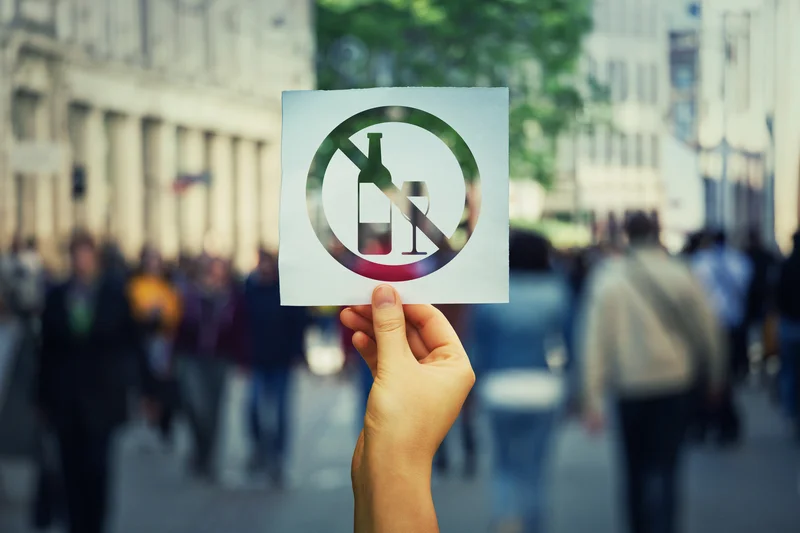Can You Gain Weight From Drinking Alcohol? Truths Uncovered Now

Many alcoholic beverages are produced through fermentation, using starches, sugars, and grains. While alcohol consumption can contribute to weight gain, the good news is that minimizing alcohol intake can lose weight over time. Alcohol hinders the body’s ability to absorb essential nutrients. This disruption can have an impact on energy levels and body weight. When you drink alcohol, it affects the digestive system, inhibiting the absorption of nutrients from the food you consume. When you consume alcoholic beverages, your liver prioritizes breaking down the alcohol rather than burning fat or carbohydrates for energy.

Can You Gain Weight Drinking Alcohol Due to Its Caloric Content?
And prolonged alcohol use can lead to mental health conditions like anxiety and depression. “Excessive alcohol consumption can cause nerve damage and irreversible forms of dementia,” Dr. Sengupta warns. Your gut microbiome is a hotbed of bacteria that help keep your digestive system happy and healthy. The trillions of microbes in your colon and large and small intestines are critical to proper digestion.
It changes how your body processes fat
We’ll focus can you gain weight from drinking alcohol primarily on the factors contributing to (seemingly) rapid weight gain. Excess alcohol can also turn to fat in your liver and can raise the amount of fat in your blood, says Sonya Angelone, R.D., a spokeswoman for the Academy of Nutrition and Dietetics. It’s also more likely to be stored in your body as fat, she says.
Does Drinking Alcohol Alongside Meals Affect Weight Gain?

Remember to read nutrition facts labels if printed on the box or bottle when selecting a beer. Consider a variety of exercise types such as cardio, strength training, balance and flexibility. If you are a patient of Anderson’s Nutrition and you do not have a mental health provider, we can refer you to one. In this article, we’ll give you the final word on whether or not hummus is keto-friendly—plus some options for lower-carb hummus alternatives if you’re one of the stricter keto dieters.

They also help fend off inflammation and support healthy metabolism. But when you ingest too much alcohol for your liver to process in a timely manner, a buildup of toxic substances begins to take a toll on your liver. Dr. Sengupta shares some of the not-so-obvious effects that alcohol has on your body. Reframe supports you in reducing alcohol consumption and enhancing your well-being.
Crouse and Grundy 48 looked at the effect of adding 630 kcal/day of alcohol to the diets of 12 men in a metabolic unit. There were no significant changes in weight for normal weight participants over the four-week intervention study. They however noted that about half of the obese participants gained weight, with the largest weight gain being 1.8 kg 48.

- You can check out a therapist in your area or find one through a national service like Better Health.
- Many mixed drinks include juices, simple syrup, or liqueur, which add extra calories quickly.
- Cocktails and mixed drinks often have more calories than beer and wine.
- For you to burn off the calories you consume from drinking just one pina colada (the calorie equivalent to a donut) you would need to run eight miles at a vigorous pace.
- Binge eating and weight gain are common during treatment for alcohol addiction, when an underlying eating disorder may become more active.
- To keep the calorie count as low as possible, avoid mixers and added sugar when possible.
Even those who are usually conscious of their diet struggle to resist the urge to eat when intoxicated. Heavy alcohol consumption can damage your digestive system and impact your metabolism because the body would have to prioritize eliminating alcohol before other nutrients. In general, all levels of alcohol intake can affect digestion and absorption of nutrients.
- Once you add in the sweet syrups and liquor, you are consuming over 400 calories per drink!
- There have also been recent studies that have found a general positive association between alcohol intake and weight gain 42.
- Ever wondered why it’s not a salad you’re craving but something greasy or cheesy?
- If you are served a drink that is larger than the standard size, skip a second drink.
- Discover how weight loss may help reverse it — and what steps you can take to improve your liver health today.
- Beer, hard cider, sugary wine – they can all pack a powerful caloric punch.
FAQs about Alcohol Consumption and Weight Gain
Studies show that even moderate alcohol consumption shortens REM sleep. It’s a crucial Substance abuse stage for memory consolidation and overall well-being. Alcohol disrupts your metabolism and lowers testosterone which, in addition to the added calories, contributes to weight gain.
- We’ll focus primarily on the factors contributing to (seemingly) rapid weight gain.
- Alcohol consumption isn’t as black and white for weight loss and weight gain.
- LifeMD and Sesame are two telehealth platforms providing weight loss treatment.
- The study showed that when mice were given doses of ethanol, they increased their food intake over time.
Alcohol may make it easier to fall asleep, but once you are asleep, alcohol will prevent your brain from reaching the deep, regenerative sleep you need to feel fully rested. The effects of alcohol on sleep will not only make you feel more tired throughout the day but will actually lead to an increased probability of weight gain. You can stop bloating from alcohol consumption by refraining from drinking alcohol. Or, you may keep drinking in moderation and avoid carbonated drinks or those with artificial sugars to see if this reduces bloating. This could lead to chronic gastritis as the alcohol continuously damages the stomach lining. These effects can result in ongoing bloating and complications, such as nutritional deficiencies.